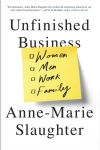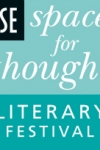 Image Credit: Pixabay
Image Credit: Pixabay
Most Read Book Reviews of December 2015:
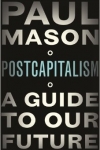 Postcapitalism: A Guide to Our Future. Paul Mason. Allen Lane. 2015.
Postcapitalism: A Guide to Our Future. Paul Mason. Allen Lane. 2015.
Paul Mason outlines the emergence of a new economic paradigm – postcapitalism – partly instigated by rapid developments in information technologies that challenge the traditional categories of classical economics and offer the possibility of forging a more socially just and sustainable economy. While the book presents a comprehensive insight into the failings of the current economic system, Simon Horton argues that Mason is overly optimistic in assuming that the information economy will necessarily engender a transition away from existing capitalist structures.
If you are interested in this review, listen to a podcast of Paul Mason’s lecture at LSE on 18 Nov 2015.
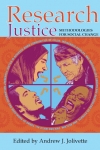 Research Justice: Methodologies for Social Change. Andrew J. Jolivette (ed.). Policy Press. 2015.
Research Justice: Methodologies for Social Change. Andrew J. Jolivette (ed.). Policy Press. 2015.
In this collection, edited by Andrew J. Jolivette in collaboration with the US non-profit organisation DataCenter: Research for Justice, a number of authors consider how researchers can contribute to the struggle for social justice through their research methodologies. While Helen Kara would have welcomed more reflection on the possible limitations of methodologies designed to reduce inequalities, she nonetheless positions this book as an important and engaging contribution to the field.
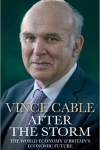 After the Storm: The World Economy and Britain’s Economic Future. Vince Cable. Atlantic Books. 2015.
After the Storm: The World Economy and Britain’s Economic Future. Vince Cable. Atlantic Books. 2015.
The former Secretary of State for Business, Innovation and Skills (2010-15) reflects on the state of the British economy since the financial crisis. The book explains the policies introduced to restore the economy during the coalition years and offers recommendations to ensure future long-term growth and to stimulate productivity. LSE academic Swati Dhingra welcomes the book as an illuminating behind-the-scenes account of Cable’s experiences in government with policy insights that will be of relevance for many years to come.
If you are interested in this review, listen to a podcast of Vince Cable speaking at the official launch event of the LSE Business Review blog as part of a panel of economists discussing the question of ‘How Can the UK Improve Productivity and Still Build the Workforce?’ .
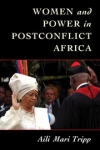 Women and Power in Postconflict Africa. Aili Mari Tripp. Cambridge University Press. 2015.
Women and Power in Postconflict Africa. Aili Mari Tripp. Cambridge University Press. 2015.
Aili Mari Tripp provocatively argues that major conflict can have disruptive, egalitarian effects, catalysing women’s increased legislative representation. She demonstrates how conflict has often pushed women into socially valued domains, where they demonstrate their equal abilities and thereby undermine prevailing gender ideologies. Alice Evans explores the theoretical insights of this important scholarship, arguing that the book sheds light on much broader processes of egalitarian social change common to the Global North and South alike.
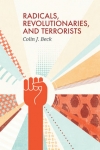 Radicals, Revolutionaries and Terrorists. Colin J. Beck. Polity. 2015.
Radicals, Revolutionaries and Terrorists. Colin J. Beck. Polity. 2015.
Colin J. Beck seeks to provide new conceptual tools through which to consider the potential overlap between notions of radicalism, revolution and terrorism. While elements of Beck’s argument are suggestive and promising, the book’s insights are often constrained by its overarching theory-driven methodology, writes Audrey Borowski.
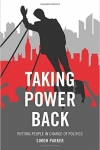 Taking Power Back: Putting People in Charge of Politics. Simon Parker. Policy Press. 2015.
Taking Power Back: Putting People in Charge of Politics. Simon Parker. Policy Press. 2015.
Simon Parker argues for urgent reform of the UK’s centralised democracy. Tony Travers welcomes this book as a well-researched account that both outlines the historical decline of local government in the UK and proposes innovations through which citizens can gain more direct control over their own lives. However, public faith in the capacity to actually secure such empowering change remains a pressing question.
To mark the announcement of the winner of the Turner Prize 2015, we recommended 8 must-read books about artistic production around the globe.
We also took you on a tour of the best bookshops of 2015, found in cities including Glasgow, Tirana, Frankfurt and York.
You May Have Missed…
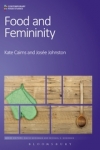 Food and Femininity. Kate Cairns and Josée Johnston. Bloomsbury. 2015.
Food and Femininity. Kate Cairns and Josée Johnston. Bloomsbury. 2015.
Women’s personal relationship with food has changed exponentially over the course of a few generations. Kate Cairns and Josée Johnston explore the emotional and often complex relationship between food and ‘doing gender’, and how this impacts upon our understandings of femininity today. Katherine Williams recommends this volume to readers interested in food sociology, gender, social history and consumer culture.
 Venezuela Reframed: Bolivarianism, Indigenous Peoples and Socialisms of the 21st Century. Luis Fernando Angosto-Ferrández. Zed Books. 2015.
Venezuela Reframed: Bolivarianism, Indigenous Peoples and Socialisms of the 21st Century. Luis Fernando Angosto-Ferrández. Zed Books. 2015.
Luis Fernando Angosto-Ferrández responds to the rise of ‘socialism of the twenty-first century’ in Latin America by looking at the specific role played by indigenous communities and organisations in the Bolivarian movement. The book is a timely and well-researched volume that will be of use to those interested in Venezuelan politics, indigenous issues and the formation of alternatives to capitalism, writes Francesco Di Bernardo.
Coming up in 2016…
We feature reviews of Amartya Sen’s The Country of First Boys, Mary Beard’s SPQR, Tony Travers’s London Boroughs at 50, Daniel and Richard Susskind’s The Future of the Professions and Mike Savage’s Social Class in the 21st Century.
LSE welcomes a number of exciting visitors in January, including Anne-Marie Slaughter, BrewDog founder James Watt and journalist Ben Judah.
We look forward to LSE’s 8th Space for Thought Literary Festival. Staged between 22 – 27 February 2016, this year’s theme is Utopias, inspired by the anniversary of Thomas More’s formative work.





